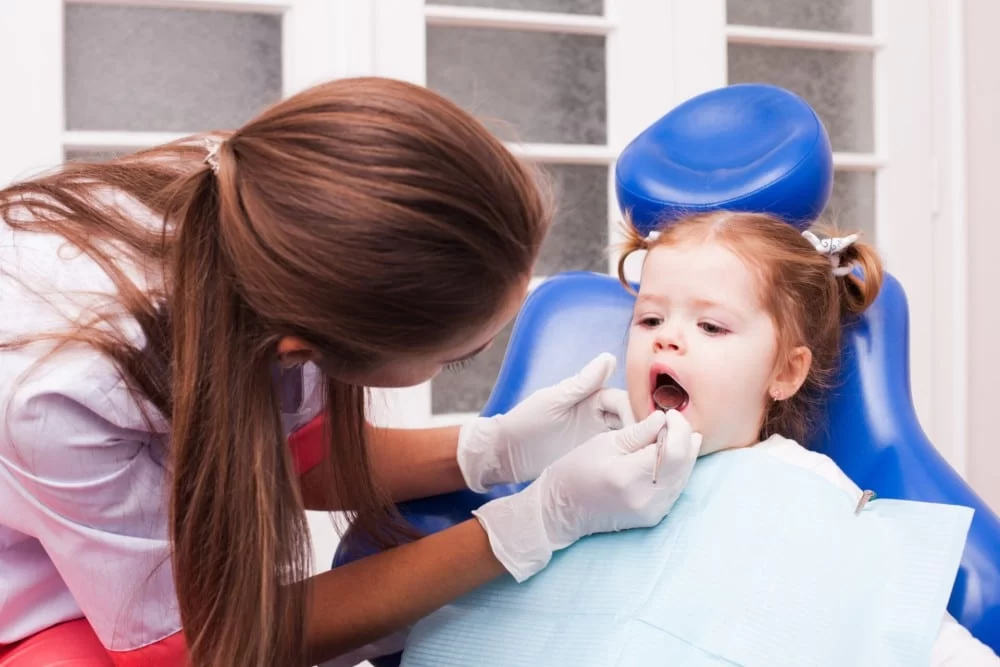
When Is the Right Time for Your Child's First Visit to the Dentist?
As a parent, you may have wondered, "When should my child visit the dentist for the first time?" This question often lingers in the minds of many new parents. Well, let me take you through some essential insights on this topic, offering you not only the science behind dental health but also personal tips and experiences to ensure you’re making the right decision for your child.
1. The Right Age for the First Dentist Visit
When my first child, Emma, was born, I didn’t realize how early I needed to start thinking about dental health. I assumed that teeth wouldn’t appear for months, so there was plenty of time to think about visits to the dentist. However, the American Academy of Pediatric Dentistry (AAPD) recommends that your child visit the dentist by their first birthday. Yes, you read that right—one year old!
Why so early? Even before their first birthday, your child’s gums may need attention to prevent future dental issues. Early visits are about getting your child comfortable with the dentist and ensuring that any potential issues are caught early, like thumb-sucking or early signs of tooth decay.
2. Why Early Visits Matter
The first dentist visit isn't just about checking for cavities or cleaning teeth. It’s an opportunity to build a foundation for your child's dental health. During this early visit, the dentist will typically examine your child’s teeth and gums, assess their risk for any dental problems, and provide guidance on proper cleaning habits. They’ll also discuss the right diet for healthy teeth and offer tips on how to prevent dental issues like cavities.
From my experience with Emma’s first visit, I learned that the early dentist appointment helps set the tone for a positive relationship with dental care. It may be a quick visit, but it provides parents with essential tips for brushing, flossing, and choosing the right toothpaste.
3. What to Expect at the First Dentist Appointment
Many parents may feel anxious about their child's first dental appointment. But let me assure you, it’s usually a relaxed and simple procedure. The goal is to make your child feel comfortable and safe, which is why many pediatric dentists have kid-friendly offices designed to make the experience fun. Here's what typically happens:
- Initial Greeting: Most dentists will begin with a brief conversation about your child's overall health and any concerns you might have. This is also a time to ask questions about your child’s diet and any habits like thumb-sucking.
- Examining the Teeth and Gums: The dentist will check your child’s gums and any baby teeth to ensure they’re developing correctly. This will also help catch any issues like early cavities.
- Cleaning (Optional): Depending on the child’s age, the dentist might clean their teeth, though this isn’t always necessary at the first visit.
- Education: Expect tips on proper oral hygiene, including brushing techniques and the importance of fluoride. The dentist will also recommend when to start flossing.
4. Preparing Your Child for the First Visit
One of the most important parts of making sure the first dentist visit goes smoothly is preparing your child ahead of time. I made the mistake of not preparing Emma for her first appointment, and it resulted in a bit of anxiety. Here's what I wish I had done:
- Talk About It Positively: I found that talking about the dentist in a positive way really helps set the stage for a good experience. Explain that the dentist is there to help make their teeth strong and healthy.
- Play Pretend: Pretending to be the dentist at home with a toy or doll can also help alleviate any fears your child may have.
- Bring a Comfort Item: Bringing a favorite toy or blanket can help comfort your child during the visit.
5. Signs That Your Child Might Need to Visit the Dentist Sooner
In some cases, your child may need to see the dentist earlier than their first birthday. If you notice any of the following signs, it’s essential to schedule a visit as soon as possible:
- Teething Trouble: If your baby seems to be in extreme pain while teething, it may be a good idea to visit the dentist.
- Thumb Sucking or Pacifier Use: If your child’s thumb-sucking or pacifier use is persistent, it can affect dental development and should be addressed early.
- Signs of Cavities: If you notice any discoloration or spots on your child’s teeth, it’s important to see a dentist right away to prevent further damage.
6. Establishing Good Dental Habits Early
Emma’s first dentist visit helped me realize that establishing good habits early is critical. After that initial appointment, we began brushing her teeth regularly, even before she had many teeth. Yes, you can clean a baby's gums and emerging teeth with a soft cloth or infant toothbrush! The dentist also gave me great tips on when to introduce fluoride toothpaste and how to brush properly.
One piece of advice I always share with new parents is to make dental care a part of your daily routine. Brushing twice a day and limiting sugary snacks go a long way in preventing cavities. A fun, positive attitude toward dental hygiene is something that will benefit your child for years to come.
7. When Should I Start Seeing a Pediatric Dentist?
Pediatric dentists are specialists who are trained to care for children’s teeth and gums, and they are often the best choice for your child's early dental visits. In fact, many parents choose to start seeing a pediatric dentist as soon as their child’s first tooth erupts. Pediatric dentists have offices that cater to kids, often featuring colorful decor and kid-friendly staff that helps reduce fear.
Throughout my experience, I’ve found that pediatric dentists are more skilled in making children feel comfortable, which can set the stage for a lifetime of positive dental visits. So, if you’re wondering whether to choose a general dentist or pediatric specialist for your child, consider a pediatric dentist for the best possible start.
8. When to Schedule Follow-up Visits
After the first visit, the next step is establishing a regular dental care schedule. For most children, this means scheduling a follow-up appointment every six months. Regular visits are essential for maintaining your child’s oral health. After each visit, the dentist will evaluate their progress and address any new concerns.
In my case, Emma’s follow-up visits were smooth and positive. She got more and more comfortable with the dentist, and it became just another fun part of our routine. I can’t emphasize enough how much starting dental visits early has helped her grow into a child who values oral health!







 Southwest Periodontal & Implant Specialists4.0 (183 review)
Southwest Periodontal & Implant Specialists4.0 (183 review) Main Line Dental Aesthetics4.0 (336 review)
Main Line Dental Aesthetics4.0 (336 review) Western Dental & Orthodontics3.0 (1196 review)
Western Dental & Orthodontics3.0 (1196 review) Alliance Orthodontics4.0 (23 review)
Alliance Orthodontics4.0 (23 review) Dr. Marty Margetis5.0 (1 review)
Dr. Marty Margetis5.0 (1 review) Dentist Of Wyckoff NJ0.0 (0 review)
Dentist Of Wyckoff NJ0.0 (0 review) The Importance of Oral Health Education During Pregnancy for a Healthy Pregnancy
The Importance of Oral Health Education During Pregnancy for a Healthy Pregnancy Best Tips for Brushing Your Teeth Properly for Healthy Gums: Essential Techniques for Oral Health
Best Tips for Brushing Your Teeth Properly for Healthy Gums: Essential Techniques for Oral Health Why Skipping Dental Checkups Can Lead to Bigger Oral Health Problems
Why Skipping Dental Checkups Can Lead to Bigger Oral Health Problems Advantages of Porcelain Dental Restorations
Advantages of Porcelain Dental Restorations How Can Diabetes Cause Tooth and Gum Problems? Preventing and Managing Oral Health Issues
How Can Diabetes Cause Tooth and Gum Problems? Preventing and Managing Oral Health Issues Healthy Habits for Promoting Good Oral Health and Hygiene: Tips for a Healthy Smile
Healthy Habits for Promoting Good Oral Health and Hygiene: Tips for a Healthy Smile